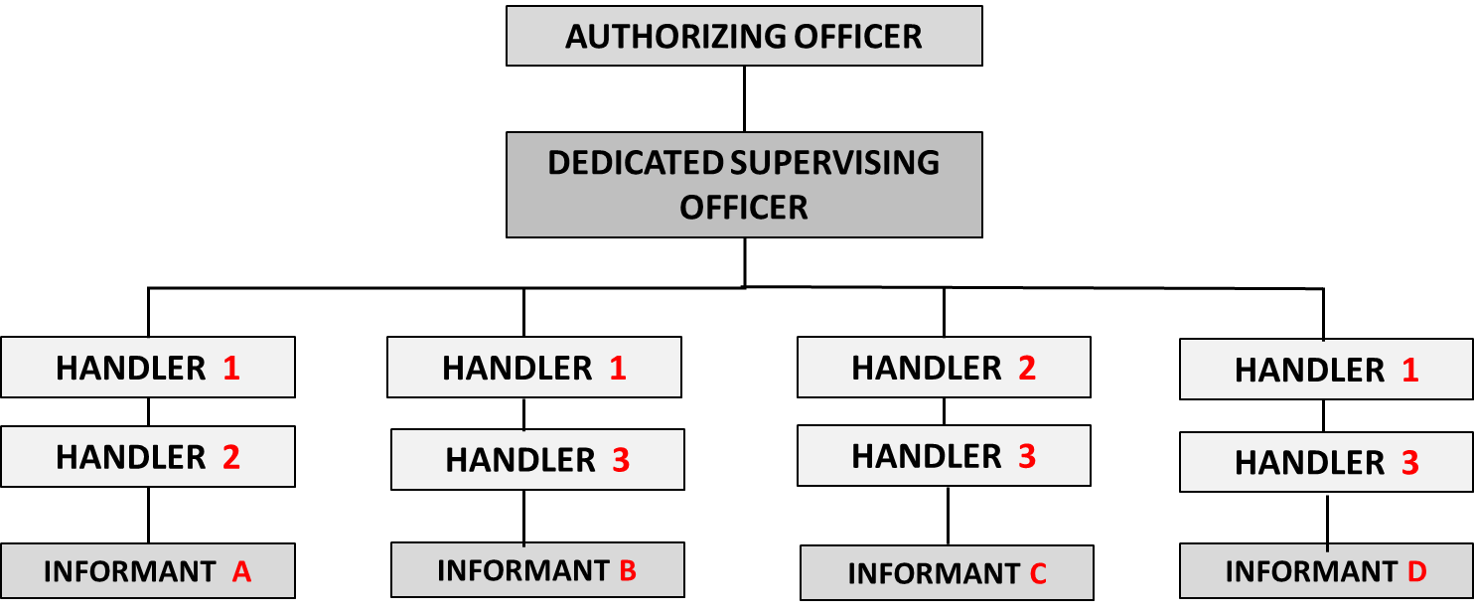To manage confidential informants safely and cost-effectively they should ONLY be managed by officers trained and dedicated to that role. This means that this dangerous function is carried out by officers that can identify and manage the risks and obtain the maximum benefit form managing the informant. There are three ranks involved. The Authorizing Officer who authorizes on behalf of the Chief of Police that the person is suitable to be an informant. Think Captain or Major. The Dedicated Supervisor is responsible for supervising the officers involved with the informant and supervising the management of the informant. Think Sergent. Each informant will have at least two handlers who attend each meeting. One will always be the same sex as the informant.
Confidential Informant Management Team
Once these structures are in place and all the officers are trained, the dedicated unit can then start to manage all informants across the agency. The more informants the agency has the greater number of handlers required. The Chief saves money because they only need to train a very limited number of officers. The informant is handled in a much safer and much more productive way. because the officers are dedicated to the role and can receive adequate training to do it safely.
Confidential Informant Management Unit
If your agency still allows any officer to manage confidential informants they are missing out on significant benefits and taking unacceptable risks. Dedicated Handling Units are mandatory in the UK. In Canada and Australia, Dedicated Handling Units recruit and Manage high risk/High-value informants.




